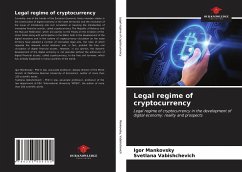
Traditional Guarani legal system
Our law, our life
Versandkostenfrei!
Versandfertig in 6-10 Tagen
41,99 €
inkl. MwSt.

PAYBACK Punkte
21 °P sammeln!
The law comes from sources other than the state, however it is valid, effective, whether or not it is accepted or recognised by the state, it has legal validity in its place of origin, fulfilling the primary function of appeasing social conflict, offering practical and necessary solutions to achieve and concretise what is understood to be justice. When these norms are applied to a concrete case, the significant mismatch between the law and the justice offered by the state, through the judiciary, is reflected. Legal monism promotes inequality and injustice, because the law enforcer is unaware o...
The law comes from sources other than the state, however it is valid, effective, whether or not it is accepted or recognised by the state, it has legal validity in its place of origin, fulfilling the primary function of appeasing social conflict, offering practical and necessary solutions to achieve and concretise what is understood to be justice. When these norms are applied to a concrete case, the significant mismatch between the law and the justice offered by the state, through the judiciary, is reflected. Legal monism promotes inequality and injustice, because the law enforcer is unaware of the social environment from which the conflict in question arises and also because of its positivist legal training. It is not a question of having a court of the woods, but of cooperating with the positive law of the State, in the objective of enforcing justice, according to the yearning and the social changes that constantly occur in society, this according to what can be called "the yearning for justice", because this understanding is not far from the theoretical and practical understanding.












